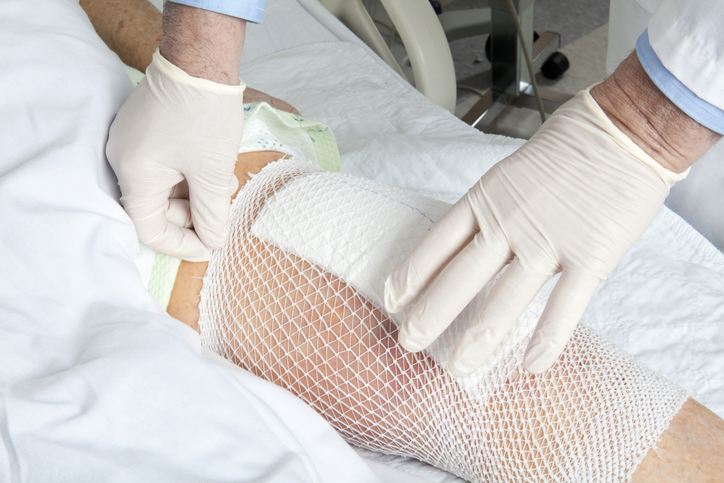
Welcome to this week’s medical news round up! In our latest edition, we bring you the healthcare topics that have been under the microscope over the past week, just in time for your med school applications.
Joining us this week: smart sensors, drug firms and a chlamydia vaccine.
Want weekly news delivered straight to your inbox? Sign up to our newsletters here!
Smart sensors
New technology helps wound healing by listening to them.
Medical news highlights a new technique that means bandages do not need to be removed to monitor wound healing.
Wound care costs the NHS billions of pounds every year. Despite some specialist wound dressings being available, the main method of monitoring the healing process is removing the dressing and looking.
Although a reliable method, continually opening dressings increases the risk of infection, which can be serious and lead to amputations.
Now, researchers are working on a method of listening to the wound healing in order to monitor its progress.
Using sensors around the wound, the technology can track damage to the skins structure on a microscopic level.
Scientists hope that this new technique will be able to aid other treatments for damaged organs and cancer in the future.
What can we learn from this?
Wounds come in all shapes and sizes, whether that be an accident, surgery, ulcers or bedsores. They are extremely common and this is reflected in the funding necessary for their care. Wound healing is often a long process, requiring a multidisciplinary team.
These new ‘smart sensors’ may be able to transform the current approach to wound healing, and in time other areas of medicine too.
Question to think about: Describe a time that you worked in a team and you were successful.
Read The Complete Interview Guide – Teamwork
Drug firm
Drug firm Aspen to pay £8m to the NHS
The Competition and Market Authority (CMA) suspect competition law was broken after Aspen paid two rival companies to stay out of the market.
This allowed Aspen to be the only UK supplier for the life-saving drug fludrocortisone, and so were able to set their prices without competition.
Following an investigation by the CMA, Aspen is to pay £8 million to the NHS and may have to pay an additional £2.1 million fine.
This is the first time a CMA investigation has secured a payment like this for the NHS and as a result Aspen is set to ensure there are at least two UK suppliers.
What can we learn from this?
Fludrocortisone is used as a treatment for Addison’s disease, which is a rare but life-threatening condition of the adrenal glands.
Pharmaceutical companies, funding and the NHS are continually a focus of ethical debates and news stories, especially as Brexit has also recently raised fears over pharmaceutical supplies.
Question to think about: Debate whether pharmaceutical companies should be able to set their own prices for life-saving drugs.
Chlamydia vaccine
A chlamydia vaccine has passed initial safety tests
Chlamydia is a common sexually transmitted infection (STI) accounting for nearly 50% of STIs in the UK.
Although antibiotics can treat chlamydia, people can catch the disease more than once and a vaccine would be able to offer long-term protection.
Additionally, antibiotic-resistant STIs are becoming an increasingly big problem, particularly antibiotic-resistant gonorrhoea. A vaccine would not only protect people from the disease, but also tackle the threat of antibiotic resistance.
The vaccine is the first of its kind to enter human trials. If trials go well, a vaccine could be available in as soon as five years.
What can we learn from this?
Chlamydia is often referred to as a ‘silent disease’, as many do not experience symptoms. However, the disease can lead to serious complications such as infertility.
It is recommended that those under 25 and who are sexually active be tested every year.
A vaccine for this common condition is widely welcomed, particularly due to recent concerns surrounding incurable gonorrhoea.
Question to think about: Debate whether vaccines should be compulsory.
Read NHS Hot Topics – Antibiotic Resistance
Words: Katie Burrell
